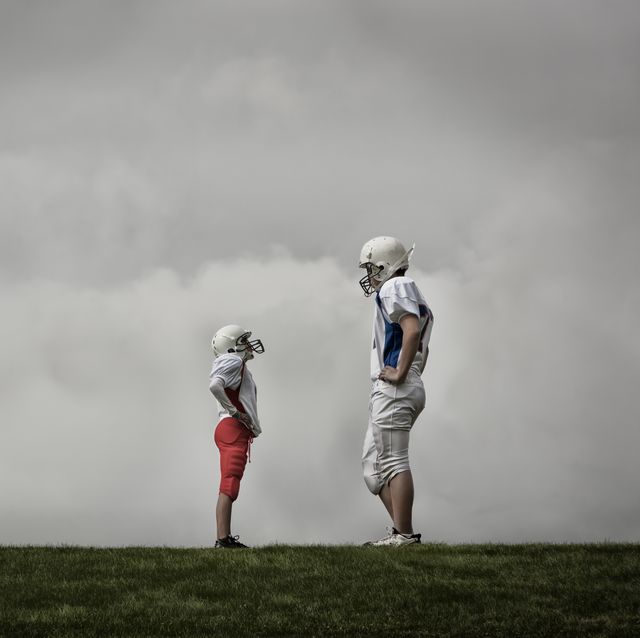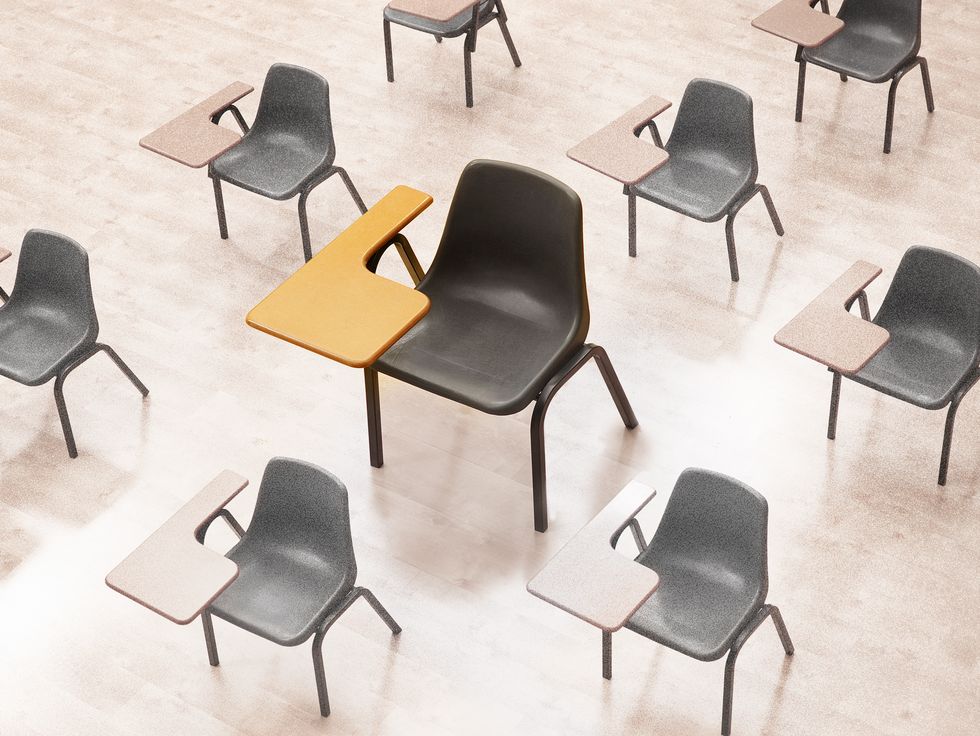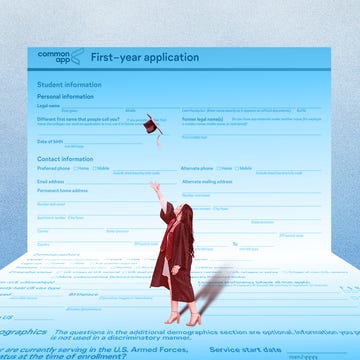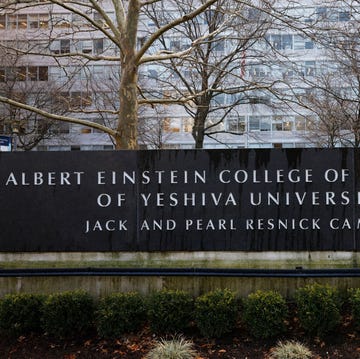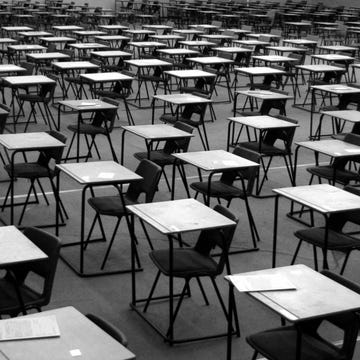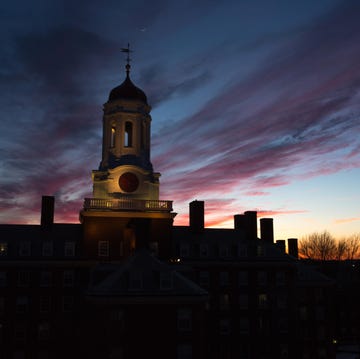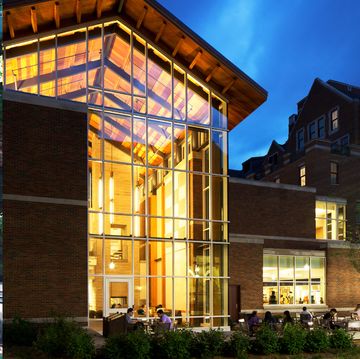By the time Jonah Anderson reached his junior year at Friends' Central just outside of Philadelphia, he had already been at the school for nearly a dozen years. But when he saw the mismatch between his near-perfect ACT score and the litany of B’s on his transcript, he decided to make a change.
“I always felt like I was capable of more,” Anderson says. “There was a gap between my ability to succeed academically and what I, at least, felt was my potential intellectually.”
With just months to go before applying to college, Anderson decided to first apply to an unusual choice: a prep school. He hoped to reclassify (sometimes called reclass), which, in his case, meant repeating 11th grade, at a school that could better cater to his learning style. Anderson says the move felt like a “step back” at first, but upon arriving at Salisbury School, the tony all-boys boarding school in northwest Connecticut, he began to feel more confident in his choice.
“Giving myself that chance to really figure myself out before college and go into college really confident,” the 24-year-old says, “was really helpful.”
Anderson is part of a growing cohort of students, beyond student-athletes, deciding to repeat high school grades. Charlie Cahn, head of school at Suffield Academy in northern Connecticut, says the number of reclassing students accepted at his 420-person school has swelled in recent years.
“It’s grown from about 30 accepts to 60 accepts [per year] in ten years," he says.
Cahn points to the popularity of gap years before college as a key driver of the trend. Many colleges, including Harvard and Yale, now encourage incoming freshmen to take time off after high school, which has removed some of the stigma associated with repeating grades.
“There's a greater understanding that it's fine to enter college at 19,” he says. “Being well-prepared and healthy and having a fulsome college experience is more important than pace to many families.”
While Cahn noted the ascent of repeating grades for academic reasons, he said the longtime practice of reclassifying for college athletic recruiting purposes is still desirable amongst families.
However, the reasons for athletic reclassification have changed in recent years: namely, the NCAA now allows coaches to recruit students in the midst of their college career without requiring permission from their current coach. Additionally, the NCAA decided to give college-athletes affected by the coronavirus pandemic another year of eligibility, making it more difficult for students eyeing a spot on a team.
“They benefit in the process for being older and stronger and more ready to play immediately,” Cahn says of students who decide to reclassify.
Some students see both athletic and academic benefits. Rick Menard, a firefighter in Massachusetts, said Milton Academy, the $75,980-a-year boarding school, reached out to his son Jack to gauge his interest in playing baseball for the private school. That kicked off research about the elite world of boarding schools in the Menard household and the family toured Tabor Academy, which is located about 80 miles south of Tewksbury Memorial High School, which Jack attended for three years. The boarding school offered Jack admission and financial aid, but suggested the pitcher repeat his junior year.
“They looked at him and they said, "Listen you have some academic gaps. The reality is it's a public school, it's a very good public school, but you're not really where we need you to be academically,’” he says.
When Jack entered Saint Michael's College in 2021, it’s likely the college had received transcripts from both his public school and boarding school when he applied. But for students restarting high school from the beginning, the chance to fully discard old transcripts, which can sometimes show undesirable letters in the alphabet, is alluring.
“I think some families like the cleanliness of one transcript [when they apply to college], particularly if the first 9th grade didn't go the way they wanted,” Cahn tells me.
While most students begin a new high school immediately after eighth grade, some New York City private schools—like St. Bernard's, Buckley, and Allen-Stevenson—end in ninth grade, which allows students to stick with a familiar environment when learning more difficult material before repeating the same grade elsewhere. Alina Adams, a New York-based education consultant, says entering prep school as a 9th grade repeat can be advantageous for college admissions.
“You already are now entering the school having done the ninth grade material, which makes it much easier to show up with all A's on your new transcript if you're basically quote, unquote, repeating the year,” she says.
Outside of academic mastery and social maturity, reclassing offers another advantage: creating older friends. Anderson says knowing classmates from his previous school, who instantly became one grade older, helped prepare him for the college admissions process, as well as the job hunt.
“Talking with my friends that were all in college allowed me to kind of have a different perspective on what I needed to do and how to get ready for that next step,” he says.
While institutions like Andover and Deerfield always appreciate a tuition check, filling campuses with reclassified students is beneficial beyond financial reasons, according to Adams.
“The kids perform better academically, which again, makes the school look better. The kids get into better colleges, which makes the school look good,” she said. “Except for a tiny, tiny percentage of kids for whom it doesn't work, there's really no downside to this.”
Andrew Zucker works at a production company in New York City. His writing has appeared in the New York Times, the Financial Times, and Air Mail, among other publications.
